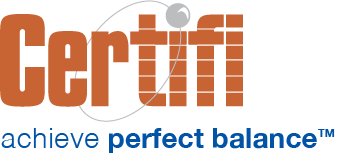On Oct. 4, 2024, The Department of Health and Human Services (HHS) released the 2026 Notice of Benefit and Payment Parameters. Here’s an overview of the regulatory document and more information about the modifications HHS proposes.
What is the HHS Notice of Benefit and Payment Parameters?
The Department of Health and Human Services (HHS) Notice of Benefit and Payment Parameters is a regulatory document published annually by the Centers for Medicare & Medicaid Services (CMS). This document outlines guidelines and parameters for the Health Insurance Marketplaces established under the Affordable Care Act (ACA). The Payment Notice plays a crucial role in shaping the implementation of the ACA.
The document covers a wide range of topics, including:
- Payment parameter risk adjustment programs and the Basic Health Program (BHP);
- User fees for health insurance issuers participating in Federally-facilitated Exchanges (FFEs) and State-based Exchanges on the Federal platform (SBE-FPs);
- Standards and requirements for health insurance issuers, agents, and brokers operating within the Marketplace;
- Benefit parameters such as essential health benefits (EHBs) and actuarial value (AV) requirements for health plans offered on the Marketplaces.
The Payment Notice undergoes a formal rulemaking process. That process includes a period for public comment before the provisions become finalized and effective. This iterative process ensures that stakeholders provide feedback and contribute to the development of the regulations.
Below is a summary of the changes HHS proposed for the 2026 Notice of Benefit and Payment parameters.
Holding Lead Agents Accountable
The proposed change to hold lead agents accountable stems from CMS’ concern over potential misconduct by agents and brokers in the ACA marketplace.
In the first six months of 2024 alone, CMS received a large number of complaints related to unauthorized activities by agents and brokers:
- Nearly 74,000 complaints involved changes made to enrollees’ coverage without their consent.
- Nearly 130,000 complaints were about individuals enrolled in plans without their knowledge.
Due to suspicions of fraud, CMS has suspended at least 200 marketplace agents since June. To address these issues and ensure greater accountability, CMS proposes holding lead agents at insurance agencies responsible for violations of Marketplace standards committed by agents under their purview. This proposal aims to increase public trust in the Marketplace and minimize the risk of fraudulent activities.
Agent and Broker Suspension
CMS also proposed gaining the authority to suspend agents or brokers from the Exchange if they pose a risk to Marketplace operations in response to complaints regarding unauthorized changes to coverage and enrollments.
CMS currently has the authority to suspend agents and brokers if they pose an “unacceptable risk” to Marketplace operations or information technology systems. HHS codified this authority in 2020.
This existing suspension authority, however, focuses on risks to system integrity and operations rather than directly addressing the accuracy of eligibility determinations or potential harm to applicants or enrollees.
CMS is proposing to broaden this authority to explicitly include situations where agents or brokers jeopardize the accuracy of Marketplace eligibility, putting consumers at risk. This proposal aims to grant CMS more direct control over agent and broker activities that could lead to consumer harm, such as unauthorized enrollments or inaccurate subsidy calculations.
The proposed expansion of CMS’s suspension authority signals a more proactive approach to curbing agent and broker misconduct. This shift stems from the increasing number of consumer complaints and CMS’s efforts to protect consumers from unauthorized actions and ensure the integrity of the ACA Marketplace.
Standardized Consent Forms
CMS proposed a new model consent form to combat unauthorized coverage changes. The consent forms document consumer agreement for enrollment or coverage changes.
CMS designed the standardized consent forms for agents, brokers, and web brokers assisting consumers with Marketplace enrollment and applications. They aim to improve transparency, accountability, and security within the ACA Marketplace by:
- Delivering clear documentation of consumer consent for enrollment or coverage changes.
- Documenting that consumers have reviewed and confirmed the accuracy of their eligibility application information before submission.
The updated model form will expand on the version introduced as part of the 2024 Payment Notice. It will include dedicated sections for documenting consumer reviews and confirmations of eligibility application details.
CMS also recognized that agents and brokers can obtain consent and confirmation through audio recordings. As a result, updated forms will provide scripts for agents, brokers, and web brokers to ensure compliance during verbal interactions.
Risk Adjustment Program Updates
In addition to the three proposed changes above, CMS also proposed modifications to the risk adjustment program, including:
- Model Recalibration: CMS proposes updating the risk adjustment program models with data from 2020 to 2022.
- Adjustments for Hepatitis C and PrEP: The proposal includes phasing out special adjustments for Hepatitis C drugs and adding new adjustments for HIV pre-exposure prophylaxis (PrEP) drugs.
- Addressing Insurer Insolvencies: CMS seeks comment on strategies to mitigate the risk of insurer insolvencies within the ACA marketplace.
- Basic Health Program (BHP) Updates: CMS proposes changes to the BHP payment methodology for more accurate state payments.
- Simplified Plan Choice: CMS aims to simplify plan choices and improve selection through updates to standardized plan options.
- User Fee Rates: Proposed user fee rates for issuers participating in the FFE will be 2.5%, and SBE-FPs will be 2.0% of monthly premiums. However, CMS made these rates contingent on whether Congress extends enhanced premium tax credits (PTCs). If Congress extends the enhanced PTCs, CMS proposes lower rates.
Those wishing to comment on the proposed rules have 30 days from when the HHS published them in the Federal Register, which occurred Oct. 10.
Certifi’s health insurance premium billing and payment solutions help healthcare payers improve member satisfaction while reducing administrative costs.



